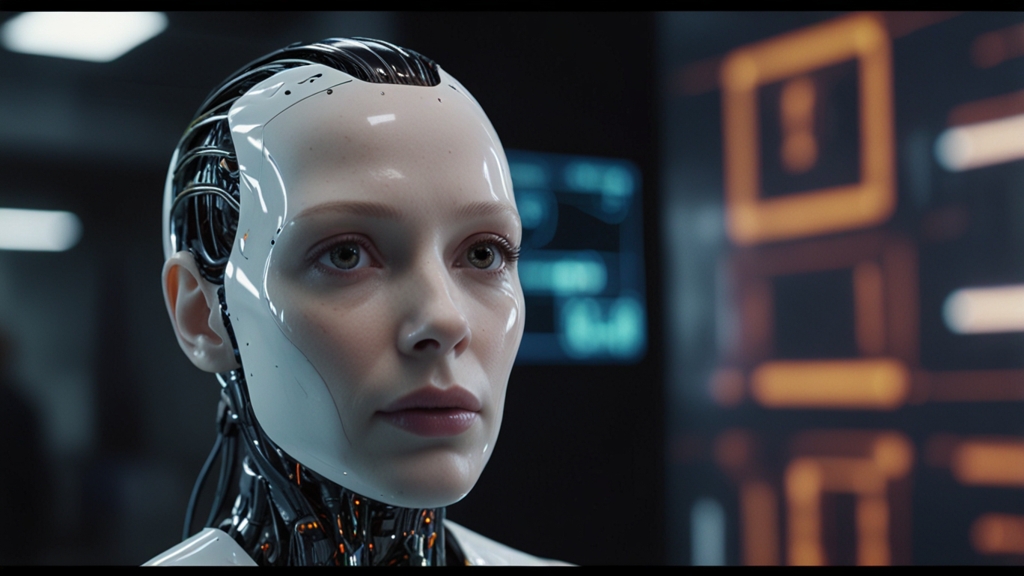Is It Time to Rewrite the Creation Story? The Future Awaits
Humanity has always been fascinated by its origins. Whether through religious texts, mythologies, or scientific theories, the creation story holds a primal place in our collective consciousness. But as we stand on the brink of an era defined by rapid technological advances, scientific discoveries, and evolving human perspectives, perhaps it's time to ask: is it time to rewrite the creation story?
The Evolution of Creation Narratives
Historically, creation narratives have served to explain the unknown, to provide a sense of order and purpose in the cosmos. From the ancient Sumerian legends to the Genesis account in the Bible, these stories were reflections of the societies that created them. They offered comfort, explained natural phenomena, and laid down moral frameworks.
"In the beginning God created the heavens and the earth." - Genesis 1:1
However, each of these narratives is a product of its time, evolving with the culture and knowledge of its people. Our modern understanding of the universe, shaped by the sciences of astronomy, biology, and physics, stands in stark contrast to these age-old stories. The Big Bang Theory, evolution by natural selection, and quantum mechanics have given us a new lens through which to view our origins.
A Scientific and Technological Paradigm
As technology advances, our ability to understand and influence the natural world grows exponentially. With breakthroughs such as CRISPR gene editing, artificial intelligence, and space exploration, the question of our origins — and our future — becomes more pressing and complex. These advancements not only enhance our understanding of where we come from but also pose new questions about creation itself.
Consider the creation of synthetic life forms or the possibility of terraforming other planets. These are not just futuristic concepts; they are active areas of research. As we move closer to these realities, our understanding of creation must expand to include the potential for life beyond Earth and even forms of life that we ourselves create.
"The significant problems we have cannot be solved at the same level of thinking with which we created them." - Albert Einstein
As we expand our intellectual and technological horizons, we may need a new creation story that can accommodate these profound changes. One that not only respects our scientific achievements but also retains a sense of awe and wonder.
The Intersection of Science and Spirituality
While science provides evidence-based explanations, many people find that it lacks the narrative richness and emotional resonance of traditional creation stories. This gap has led to a growing interest in the intersection of science and spirituality. Could a new creation story be one that harmonizes empirical evidence with the human need for meaning and connection?
Philosophers, theologians, and scientists alike are engaging in dialogues that aim to bridge this divide. Concepts like the "Cosmic Christ" in Christianity, which sees the divine in the laws of nature, or the idea of "scientific pantheism," which finds spirituality in the cosmos themselves, are examples of this synthesis.
"Science without religion is lame, religion without science is blind." - Albert Einstein
The future creation story might not be a single narrative but a tapestry woven from multiple perspectives, scientific facts, and spiritual insights. This could offer a richer, more inclusive story that respects our past while embracing our future.
Conclusion: A New Narrative for a New Era
As we advance into uncharted territories of knowledge and capability, the time seems ripe for a new creation story — one that reflects both our modern understanding and our timeless quest for meaning. This new narrative could be more than an explanation of our origins; it could serve as a guide for our future, offering wisdom, hope, and a sense of purpose as we continue to explore the mysteries of existence.
The future awaits, and with it, a creation story that is yet to be written. Will we rise to the challenge of crafting a narrative that encompasses the breadth of human experience, uniting us in our shared quest for understanding? Only time will tell, but the journey promises to be as fascinating as the stories that have led us here.





